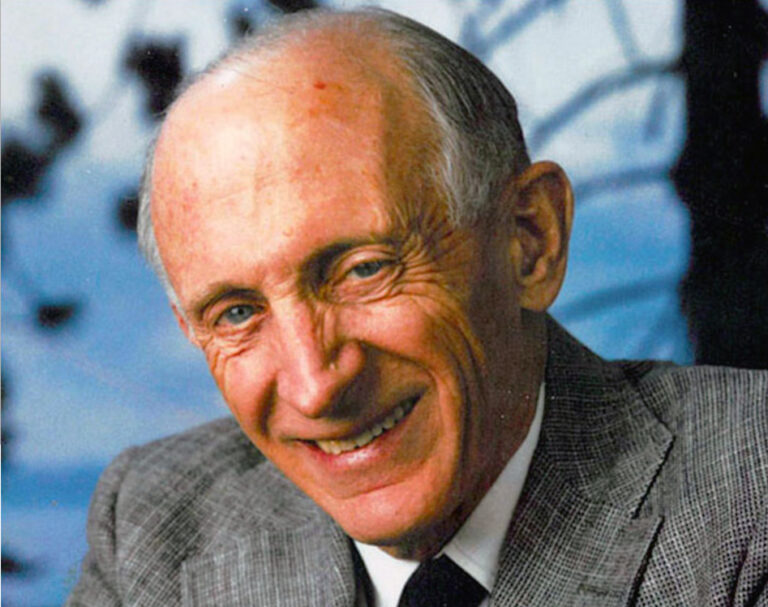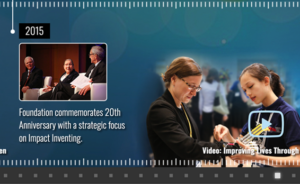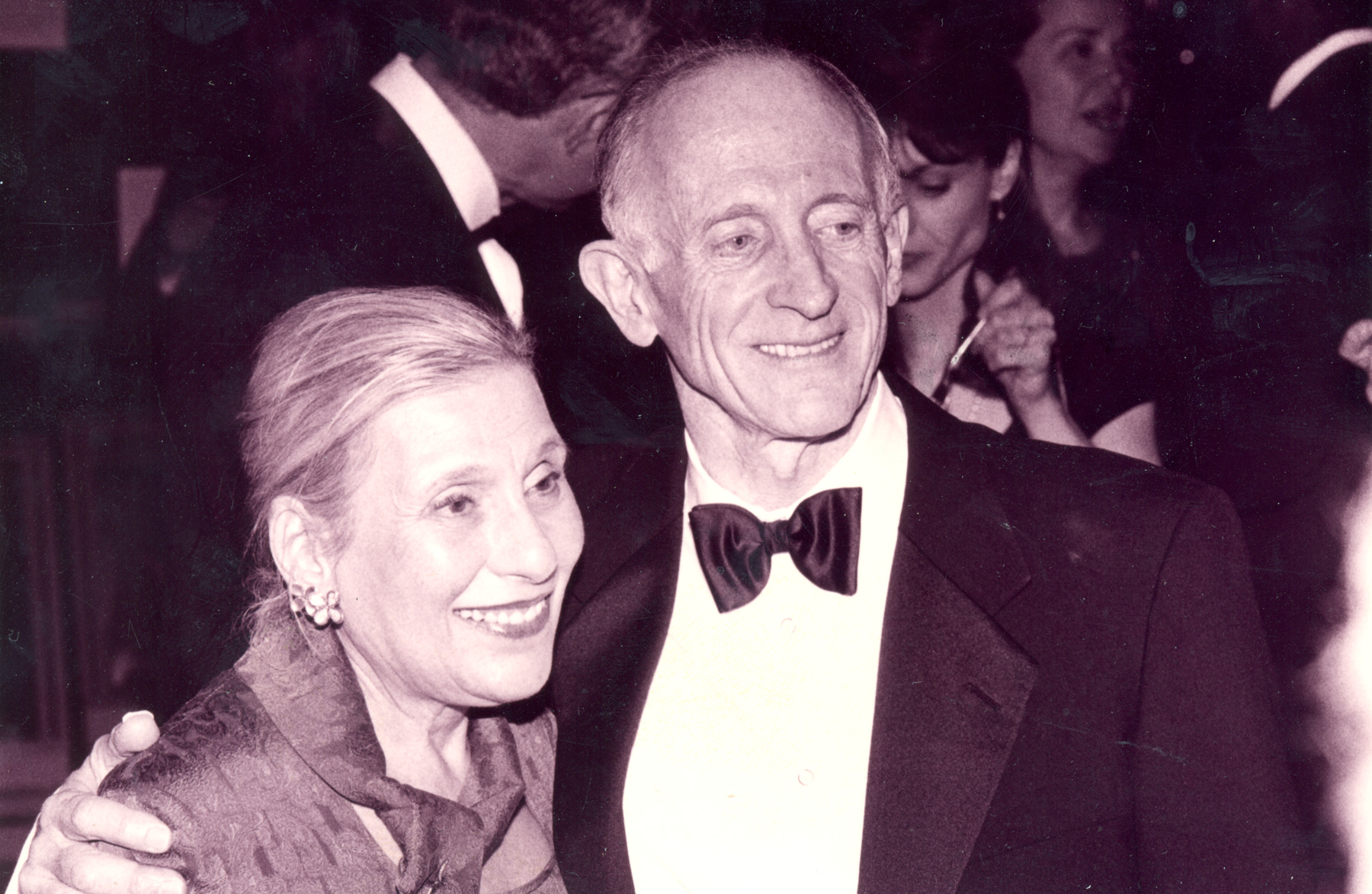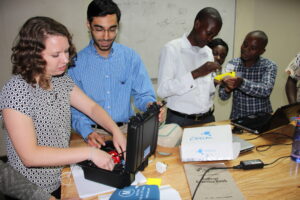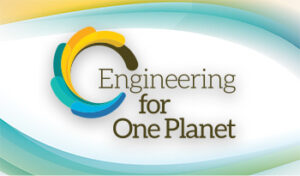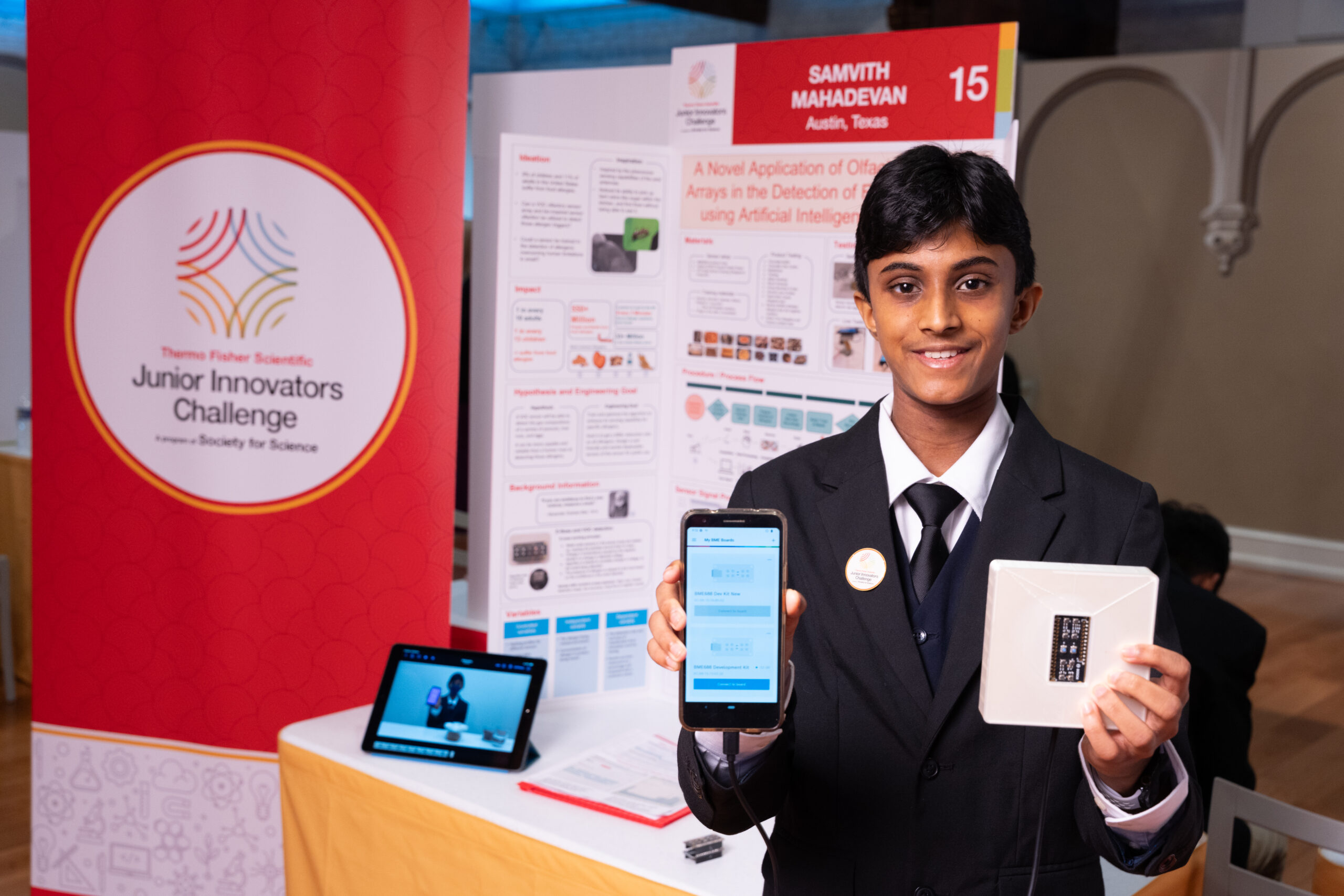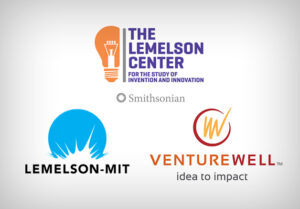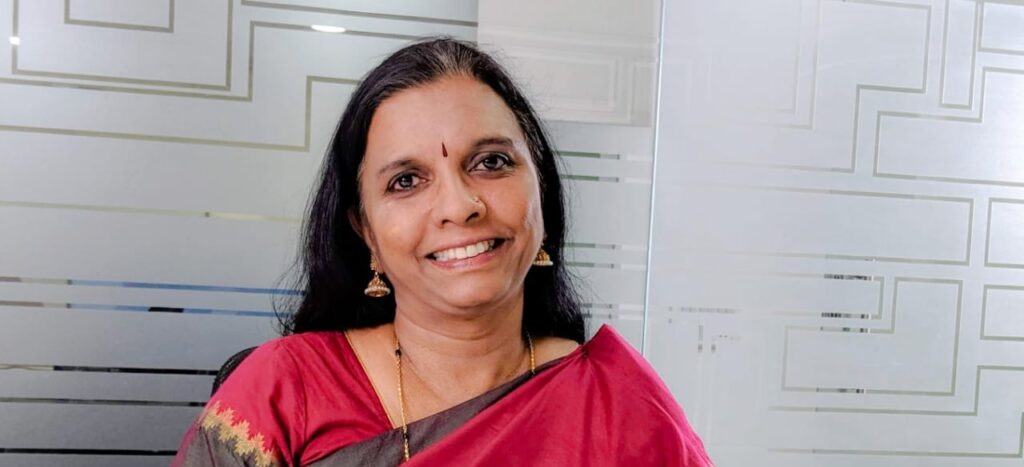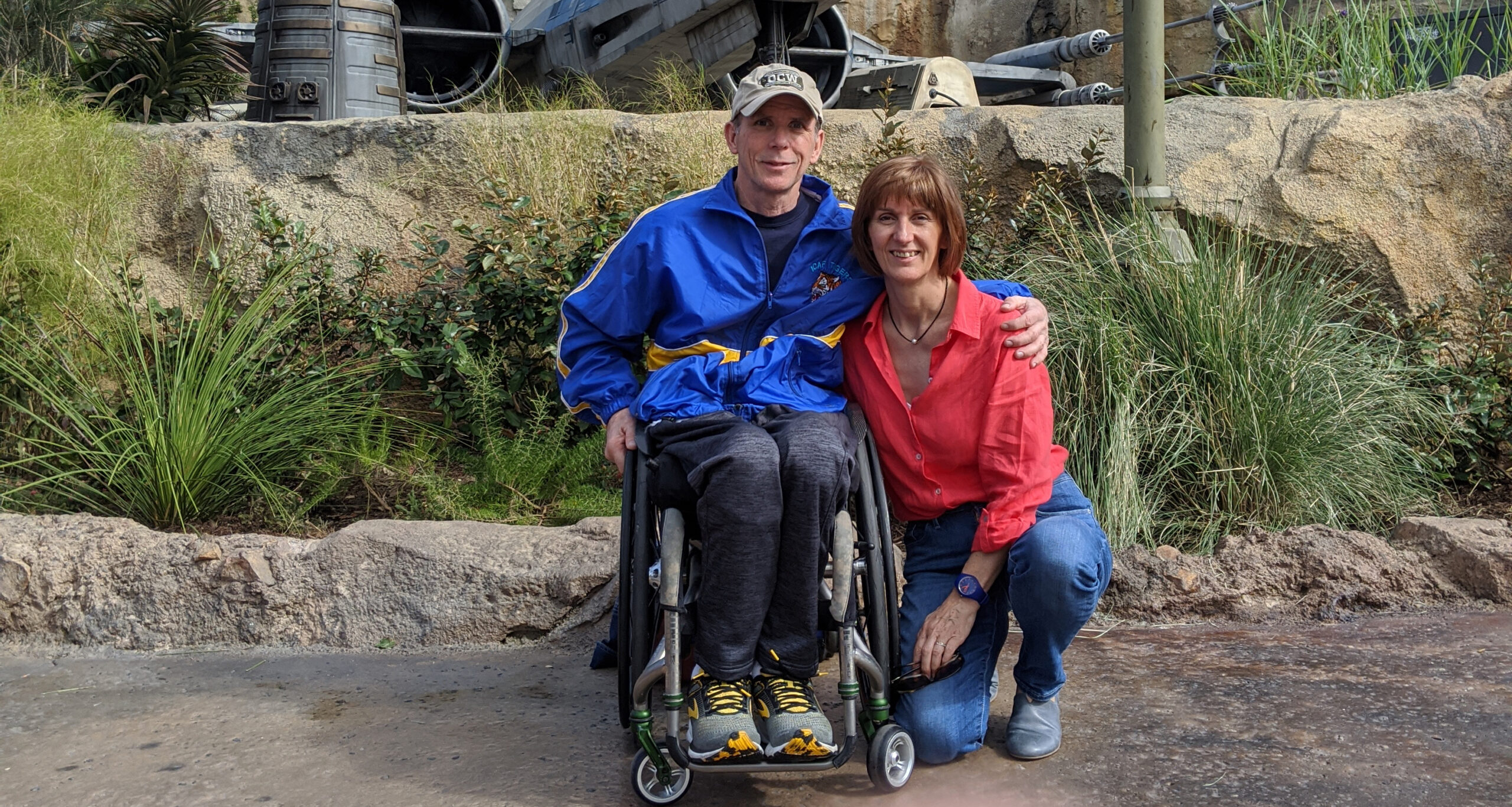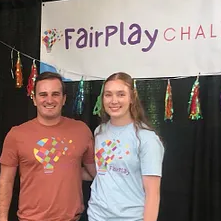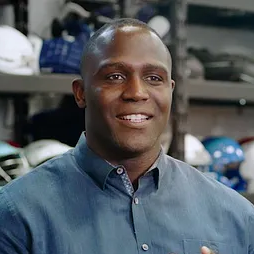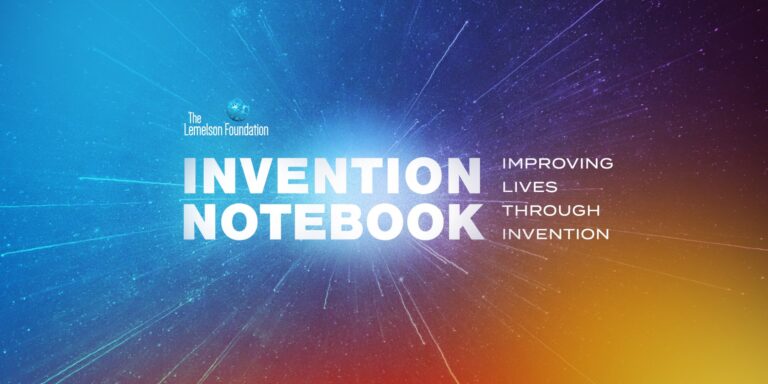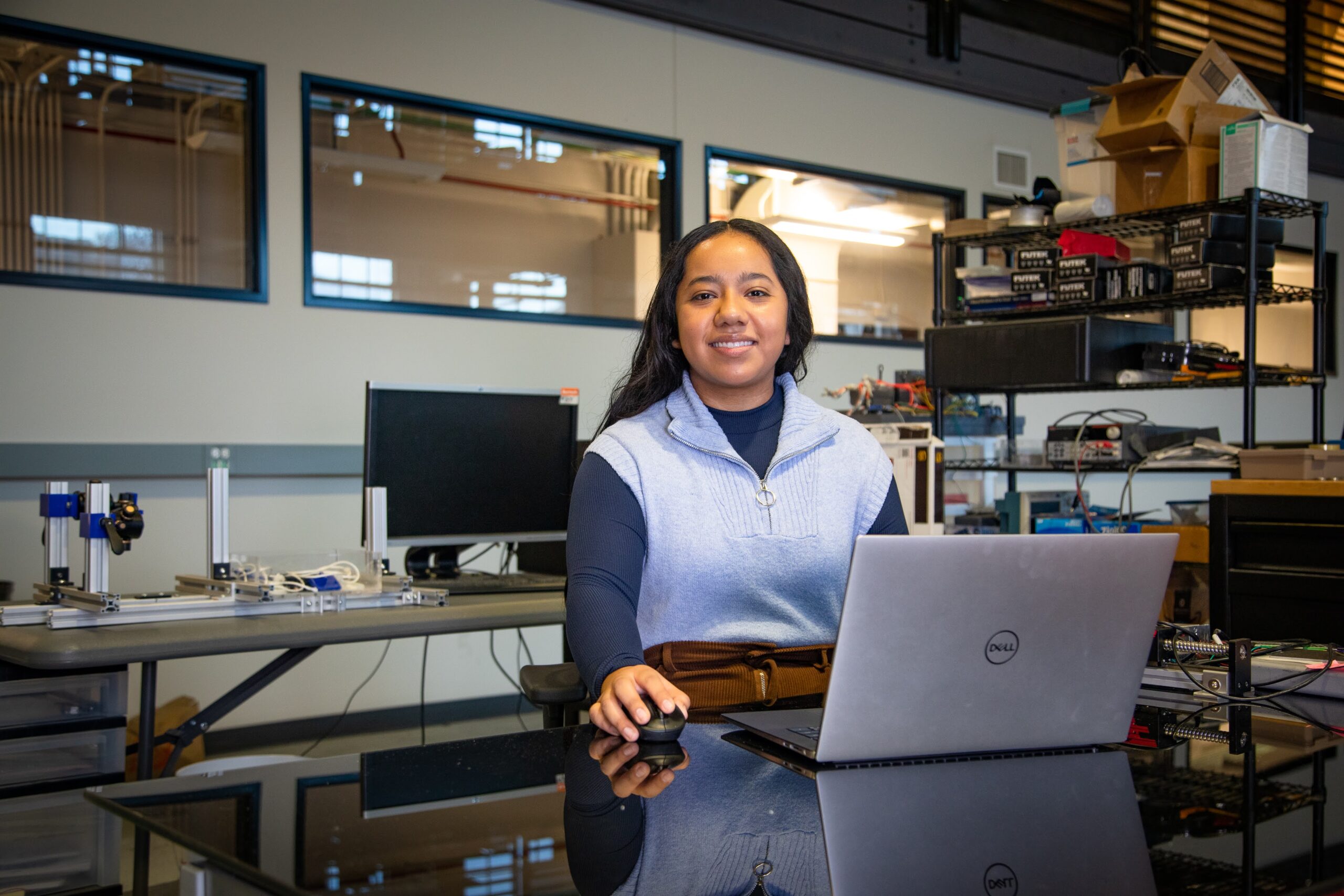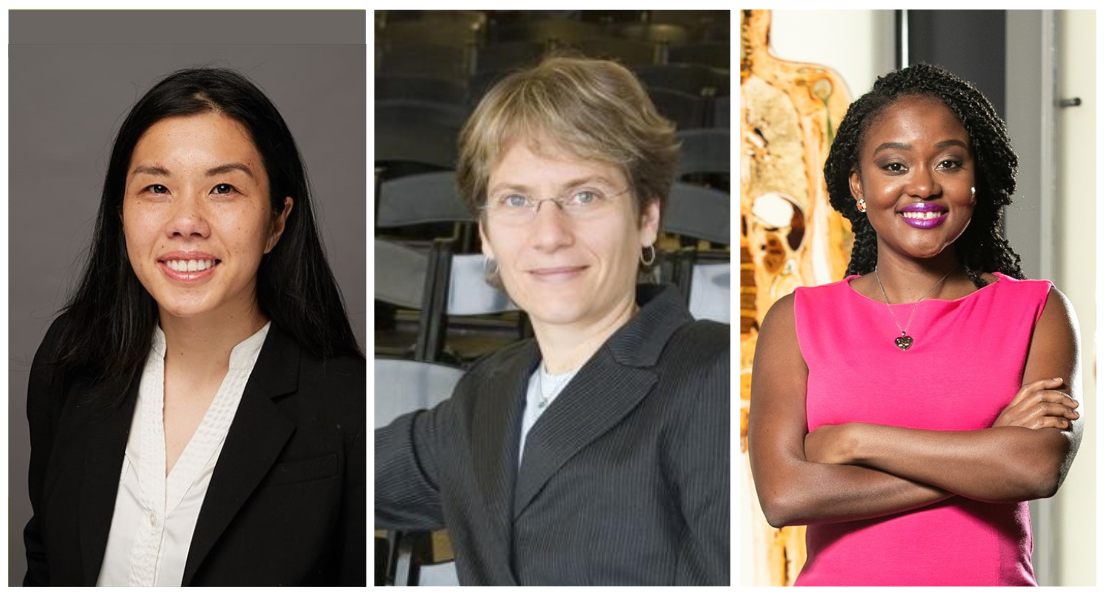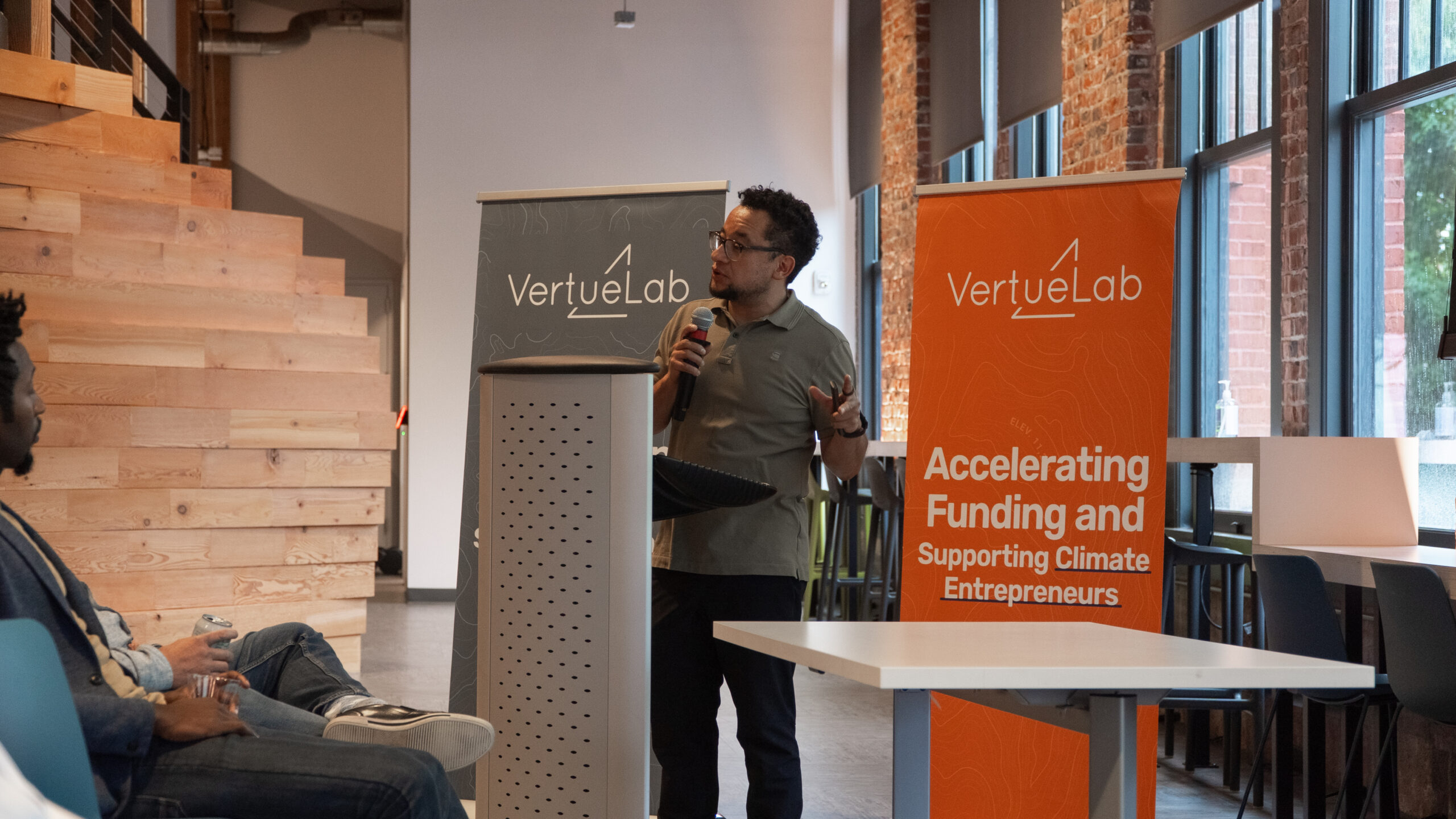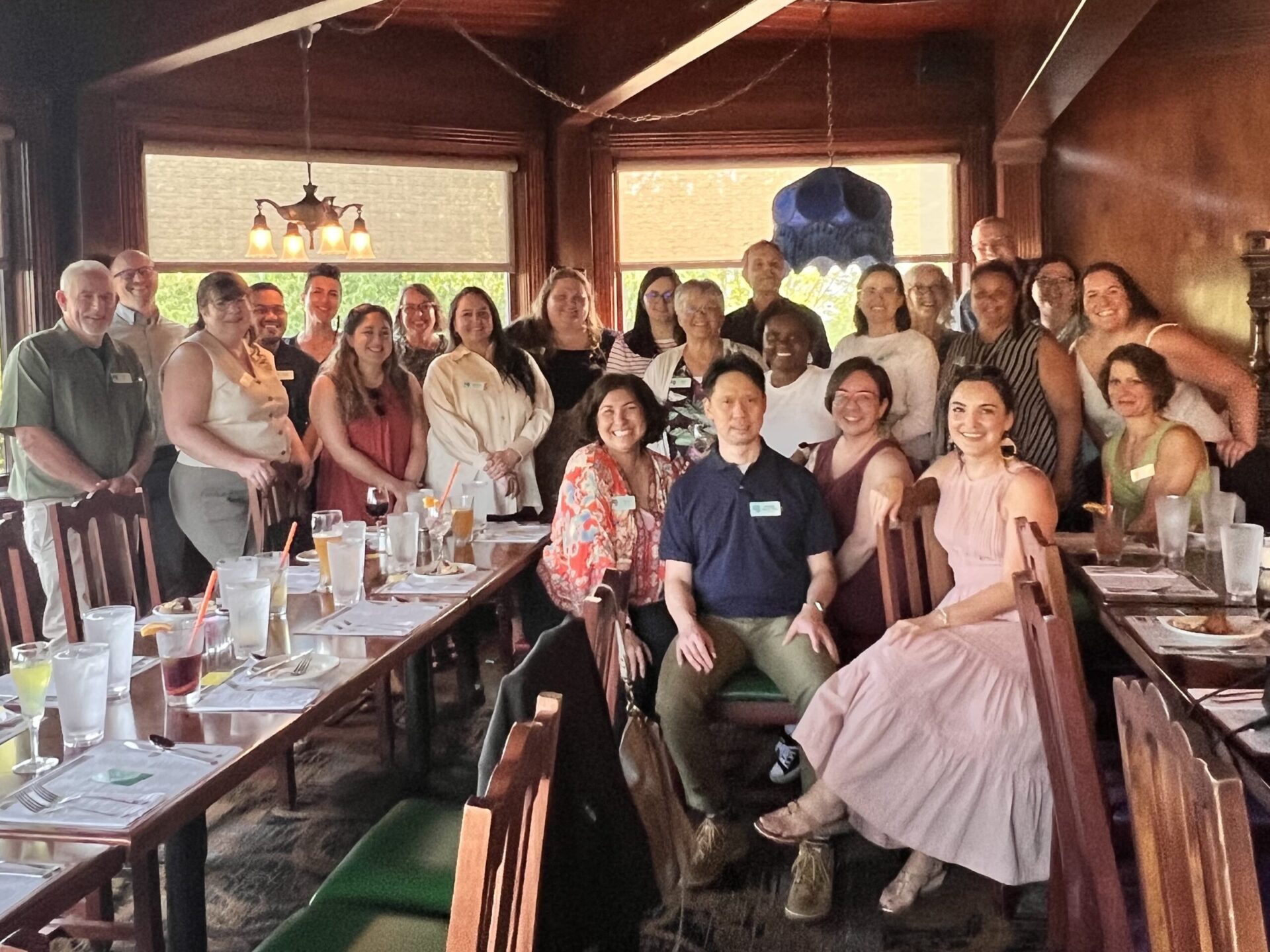2024 Inventors’ Day Roundup: Inventing for Sustainability
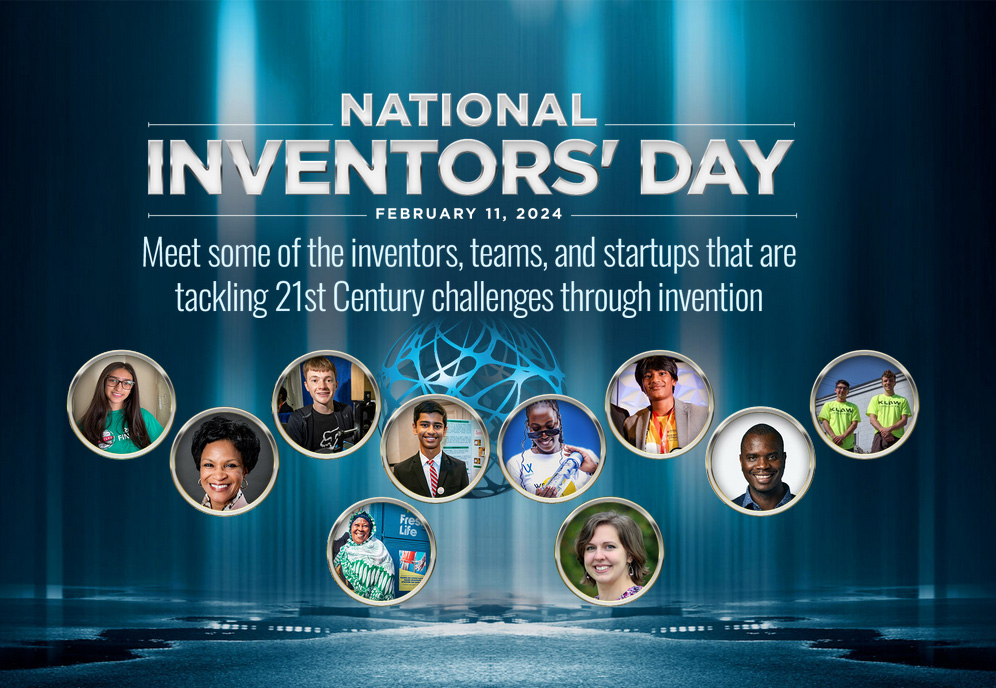
The challenges to our environment and to the health of our ecosystems are many. This National Inventors’ Day, we’re showcasing the inventors and entrepreneurs — both young and established — who are devising novel and sustainable solutions to the problems they see in the world.
From repurposing plastic waste to helping mitigate the dangers brought on by the climate crisis, these inventors and innovators are also creating products and companies that benefit our economies and our communities.

A trailblazing electrical engineer, Denise Gray helped pioneer battery technology for electric cars. Raised in Detroit, she started as a student intern at General Motors, and would go on to hold many leadership positions over her 30-year career with the company. Her work was integral to the development of GM’s Chevy Volt, one of the first hybrid cars released for the mass-market. She later worked at LG Energy Solution to expand U.S. production of lithium-ion cells and electric-car batteries. She continues to innovate electric vehicle technology, advising sustainable startups and also energy policy as a member of numerous government boards and working groups. She is a strong supporter of making STEM curriculum available to all students, particularly for underrepresented communities. Among her many recognitions, she received the 2017 Women of Color Technologist of the Year Award, the 2019 US Clean Energy Education and Empowerment (C3E) Initiative’s Lifetime Achievement Award, and in 2022, was elected to the National Academy of Engineering.

Florida high schooler Robert Sansone was motivated to invent by the drive to make electric vehicle motors more sustainable. When he learned that they are made with magnets from rare-earth materials — which come at significant financial and environmental costs — he wanted to explore a better way to build them. He developed an improvement to a synchronous reluctance motor, a type of motor that doesn’t include rare-earth elements, but is not normally powerful enough to operate a large machine like an electric vehicle. He created scaled-down models of his engine design using a 3-D printer and went through 14 motors before he hit upon a prototype that worked. His design won first prize at the 2022 Regeneron International Science and Engineering Fair (ISEF), the largest international high school STEM competition.

For electric vehicles near the end of their life cycle, what happens to their batteries? If they still have useful life in them, they can be recycled and repurposed — but determining the health of a battery can be a challenge. That’s where the company ReJoule comes in. Siblings and co-founders Steven and Zora Chung developed a faster and more accurate way to diagnose an EV battery’s state of charge and health to determine whether they can be repurposed for uses like grid-scale storage of solar energy. ReJoule is helping to create a circular economy for retired EV batteries, improving energy efficiency and reducing waste and ultimately cost. The startup was a grand-prize winner of the U.S. Department of Energy’s American-Made Solar Prize, Round 6, as well as a winner of its Justice, Equity, Diversity and Inclusion (JEDI) Contest for its use of repurposed EV batteries to provide reliable energy storage in underserved communities. ReJoule has also been selected for negotiation of a $10 million DOE Office of Clean Energy Demonstrations award to reduce costs of Long Duration Energy Storage (LDES) using repurposed EV batteries.

Jacob Kumpon and Jack Lamuraglia
Each year, Americans dispose of some 10 million metric tons of glass. Only one third of it gets recycled, while the rest ends up in landfills. When cousins Jacob Kumpon and Jack Lamuraglia learned this, they knew they’d discovered a problem they wanted to solve. They focused their efforts on cement, an active ingredient in concrete that is in short supply globally. They developed a supplementary cementing material called Pantheon™ made through a patent-pending process using recycled crushed glass, which increases concrete’s strength while at the same time reduces its carbon footprint. They launched their company, KLAW Industries, in upstate New York, and with support from the VentureWell Accelerator, they were able to get their material certified and secure early adopters – like their hometown of Binghamton, which is currently using it in infrastructure upgrades like new curbs and sidewalks.

Improving energy and building efficiency is one sustainable solution to address the challenge of climate change. The inefficiency of residential glass windows is a major contributor to the costs of cooling and heating a home, impacting energy use and contributing to the release of more greenhouse gases into the atmosphere. Elise Strobach, co-founder of the startup AeroShield, and her fellow researchers at MIT found a way to combat that by making glass out of an aerogel. This light and porous material has been in use since the 1930s, but Strobach created a patent-pending formulation that turned it from a translucent blue to clear transparent, letting full light in while it continues to trap heat. AeroShield’s innovation won them the grand prize at the U.S. Department of Energy’s American-Made Solar Prize, Round 4. They originally intended to focus on improving the efficiency of solar energy collectors, but support from VentureWell and the National Science Foundation helped them expand the potential usage and customer base to also provide better thermal insulation in a cost-effective way for home windows. Aeroshield is continuing to make waves in the solar thermal energy and window industries, helping shed light on how energy efficiency can be an effective counter to climate change.

Many developing countries are facing food insecurity because of the effects of climate change. Small-scale farmers are experiencing lower yields, and the fertilizer they need to help increase food production can be prohibitively expensive for them. Benard Tabu, an energy engineering PhD. student at the University of Massachusetts Lowell, was inspired to invent by the situation in his home country of Uganda, where malnourishment is a significant problem, particularly for children. He and his colleagues, who were a 2022 VentureWell E-Team, are addressing this food crisis by developing a sustainable, low-cost, solar-powered fertilizer system. Their device uses air and water to create on-demand nitrogen fertilizer without producing the greenhouse gases that contribute to climate change.

Basic sanitation remains an issue for roughly half of the planet’s population, particularly in densely packed urban areas across low- and middle-income countries — harming human health, the environment, and economies. The Sanergy Collaborative is tackling the problem by using waste management that complements water-based sewer systems using a circular approach. Their founding partner, Fresh Life, works with municipalities to provide clean and accessible toilets, then waste removal services, and finally treatment and conversion of that waste into useful and safe agricultural products like organic fertilizer and animal feed. Their Fresh Life toilet is a waterless toilet made from local materials that is both cost-effective and eco-friendly. Sanergy started as a project by students at MIT Sloan School of Management in 2010, supported by VentureWell’s E-Team program, and then piloted their program in Nairobi, Kenya. It currently operates in three cities across Kenya and in Lusaka, Zambia, with plans to grow to more cities in Sub-Saharan Africa through public-private partnerships and a franchise model.


Prisha Shroff & Adyant Bhavsar
Both Prisha Shroff and Adyant Bhavsar were inspired to invent for their science fair projects by experiencing the threat of wildfires and a desire to protect against the effects of climate change they witnessed in their own communities in Arizona and California. Prisha invented a device to predict potential wildfire hotspots, combining A.I. with satellite imagery from NASA and NOAA to locate danger areas. She’s currently working on a version that would help fight fires too by deploying drones that release fire retardant. Adyant explored a sustainable and renewable energy source that could be used to ensure consistent power for wildfire monitoring devices in remote areas. He built his own triboelectric nanogenerator, which uses two thin, touching objects that transfer electrons to create an electric charge. Both of their devices won them the Lemelson Award for Invention as part of the Society for Science’s Broadcom MASTERS and Thermo Fisher Scientific Junior Innovators Challenge, the country’s premier middle-school STEM competition.

Rising temperatures brought on by climate change are particularly dangerous in urban settings in the Global South. Exacerbated by a lack of trees and roofs made from tin, extreme heat leads to higher mortality rates, particularly among the young and the elderly. Steam Plant is an established engineering business in Nairobi, Kenya, that has evolved its focus from providing steam systems to exploring passive cooling technology for buildings. It uses reflective paints to cool roofs on industrial structures, and has recently engaged in public-private partnerships to apply this same technique to informal settlements in low-income areas. They won a grant from the global Million Cool Roofs Challenge to paint the roofs of homes, schools, hospitals, and other community buildings, helping to not only lower building temperatures but to also reduce urban heat islands.

Plastic waste is a huge environmental and health problem, with very little of it getting recycled, and plastics finding their way into everything from the ocean to our bodies. High schooler Tarun Batchu decided to see if he could turn plastic waste into a sustainable biofuel. His prototype, called Trident, runs on a process called cold plasma pyrolysis, which involves capturing air at a cryogenic state to burn plastics and break them down into crude oil that can then be used to make biodiesel and ethanol. Tarun won The Lemelson Foudation’s Community and Societal Benefit award at the 2023 Raytheon Technologies National Invention Convention competition, sponsored by The Henry Ford.

Climate change is having a massive effect on the water supply for vulnerable communities around the globe, leading to a scarcity of safe fresh water and a proliferation of waterborne illnesses. One startup in Uganda is leading the charge on low-cost water purification through their Vepox Filter, which uses a combination of local, natural materials to filter out pathogens, chemicals, and salt. The technology was developed by student engineers at Kampala’s Makarere University as a way to provide clean water while reducing the need for disposable plastic bottles and eliminating the carbon output from needing to boil water. They launched their company to produce large water purification bottles for use by whole households and smaller drinking bottles with a self-contained filter for individual use. Vepox has received grants from UNICEF and Climate Launchpad, and built a plant in Uganda to manufacture its innovative filters on a larger scale.

